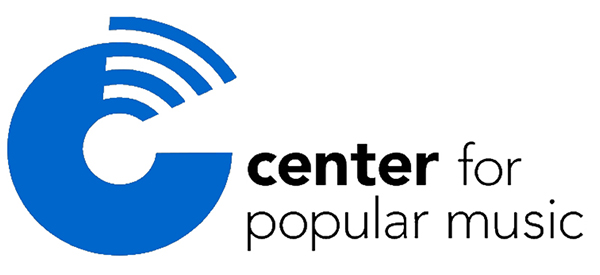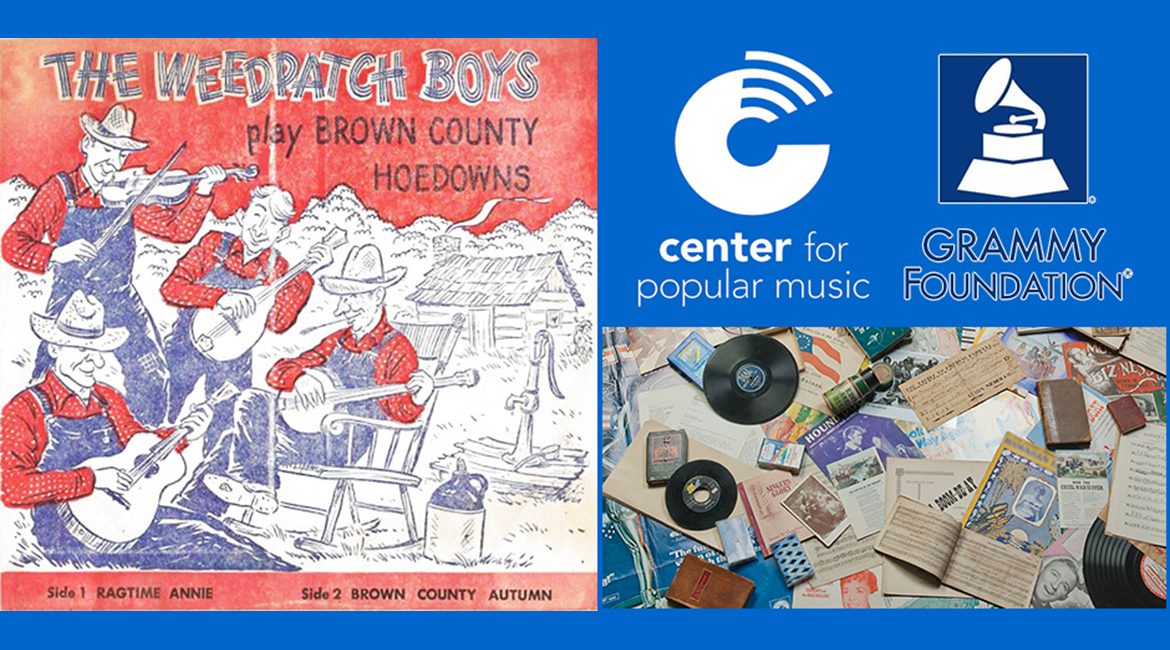Bluegrass scholars from around the world can now delve into from a devoted music lover’s “historically and culturally significant” live bluegrass audio collection, both in person and online, via MTSU’s Center for Popular Music.

This rare 45 rpm single by “The Weedpatch Boys,” released in 1963, is part of a large “historically and culturally significant” bluegrass audio collection donated to MTSU’s Center for Popular Music by the family of Indiana music lover Marvin Hedrick.
The center used a $19,537 grant from the Grammy Foundation to catalog, preserve and digitize the extensive collection of Indiana music lover Marvin Hedrick at http://tinyurl.com/hedrickcollection, which includes rare live recordings of many of the genre’s most significant figures.
Some of the artists featured in Hedrick’s recordings include the father of bluegrass, Bill Monroe, as well as Reno and Smiley, Mac Wiseman, the Country Gentlemen, the Stanley Brothers, Flatt and Scruggs, Wilma Lee and Stoney Cooper, the Stoneman Family, Jim and Jessie, and the Osborne Brothers.
The $19,537 Preservation Implementation Grant will make the center an even greater research resource for MTSU students and faculty as well as scholars from across the world, director Greg Reish said.

Dr. Greg Reish
“Mr. Hedrick was, among other things, a fixture at the Bean Blossom Bluegrass Festival,” Reish explained. “He lived in Brown County, where the festival’s held, and befriended Bill Monroe and all the other pioneers of bluegrass. He also was very helpful to younger folklorists who took a serious interest in bluegrass.”
Hedrick, a Nashville, Indiana, radio and TV repairman as well as a musician, recorded priceless festival performances and backstage jam sessions as well as impromptu sessions at his shop. He died in 1973.
His sons, Gary and David, donated 167 open-reel tapes, a variety of other sound recordings and photographs to the Center for Popular Music in 2015 for preservation and archiving.
The Grammy Foundation grant was one of 20 distributed nationwide in 2016 and intended to allow the MTSU center to “catalog, preserve, digitize and disseminate the tapes and their contents via a dedicated website and the center’s documentary label, Spring Fed Records,” foundation officials said.
“The Marvin Hedrick Audio Collection is one of the most historically and culturally significant collections of live bluegrass recordings in existence,” the Grammy Foundation report concluded.
 Each item in the Hedrick collection was evaluated and preserved via various steps, including baking, splicing and re-spooling of magnetic tapes. The tapes’ audio contents were digitized in the center’s state-of-the-art audio preservation lab, and each item was catalogued, and tagged with essential data such as song titles, performers, dates and other information using CONTENTdm archival management software.
Each item in the Hedrick collection was evaluated and preserved via various steps, including baking, splicing and re-spooling of magnetic tapes. The tapes’ audio contents were digitized in the center’s state-of-the-art audio preservation lab, and each item was catalogued, and tagged with essential data such as song titles, performers, dates and other information using CONTENTdm archival management software.
The center also created a Finding Aid to give an overview of the collection and its contents. It’s searchable through its special website, and one audio sample from each tape is provided as streaming audio for educational purposes.
The Center for Popular Music received a similar Grammy Foundation grant in 2013 to organize and archive 3,850 cassette and open-reel tapes of music, oral histories and field recordings of Dr. Charles Wolfe, an MTSU English professor who captured musical and interview audio from hundreds of country, blues and bluegrass music practitioners over four decades.
 Wolfe, who died in 2006, also donated his work to the center, which has since made the collection accessible on its website.
Wolfe, who died in 2006, also donated his work to the center, which has since made the collection accessible on its website.
“Gary and David Hedrick didn’t want their father’s collection to go somewhere and just languish,” said Reish, an old-time musician who’s attended the Bean Blossom event for the last decade. “They want it used, listened to and disseminated, and that’s what we’ll do.”
The grant didn’t include funds to disseminate the collection through the center’s Spring Fed Records label. Reich said that would require a large time investment for copyright and licensing work, but he’s not ruling out sharing the Hedrick files later through the center’s various channels.
The Center for Popular Music, one of the nation’s largest and richest repositories of research materials related to American vernacular music, is part of MTSU’s College of Media and Entertainment. For more information on the center and its projects and special events, visit www.mtsu.edu/popmusic.
— Gina E. Fann (gina.fann@mtsu.edu)


COMMENTS ARE OFF THIS POST